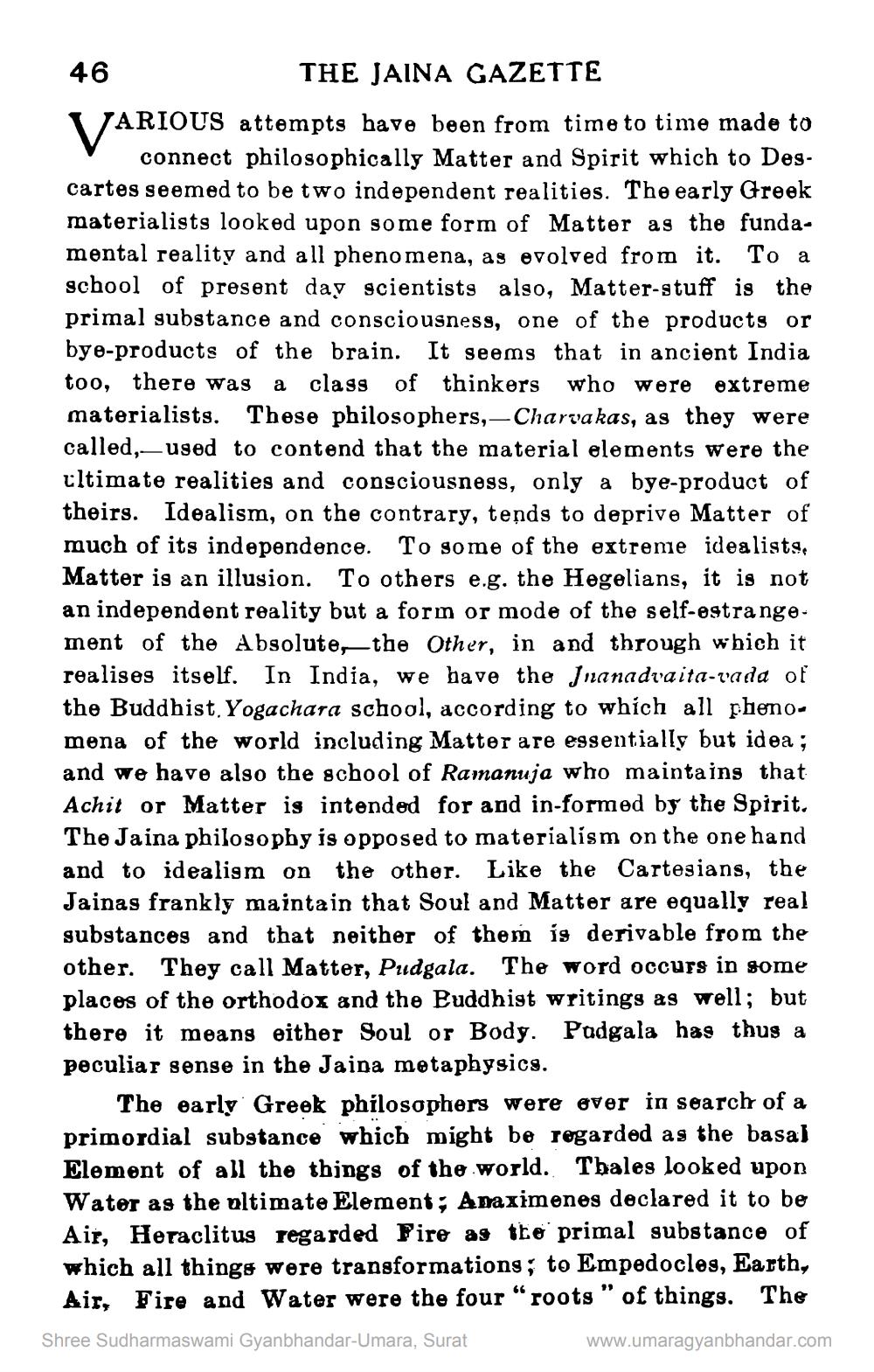Book Title: Jaina Gazette 1930 03 Author(s): Ajitprasad, C S Mallinath Publisher: Jaina Gazettee Office View full book textPage 3
________________ 46 THE JAINA GAZETTE VARIOUS attempts have been from time to time made to connect philosophically Matter and Spirit which to Descartes seemed to be two independent realities. The early Greek materialists looked upon some form of Matter as the fundamental reality and all phenomena, as evolved from it. To a school of present day scientists also, Matter-stuff is the primal substance and consciousness, one of the products or bye-products of the brain. It seems that in ancient India too, there was a class of thinkers who were extreme materialists. Those philosophers,- Charvakas, as they were called,-used to contend that the material elements were the ultimate realities and consciousness, only a bye-product of theirs. Idealism, on the contrary, tends to deprive Matter of much of its independence. To some of the extrenie idealista, Matter is an illusion. To others e.g. the Hegelians, it is not an independent reality but a form or mode of the self-estrangement of the Absolute, the Other, in and through which it realises itself. In India, we have the Jnanadvaita-vada of the Buddhist. Yogachara school, according to which all phenomena of the world including Matter are essentially but idea; and we have also the school of Ramanuja who maintains that Achit or Matter is intended for and in-formed by the Spirit. The Jaina philosophy is opposed to materialism on the one hand and to idealism on the other. Like the Cartesians, the Jainas frankly maintain that Soul and Matter are equally real substances and that neither of them is derivable from the other. They call Matter, Pudgala. The word occurs in some placos of the orthodox and the Buddhist writings as well; but there it means either Soul or Body. Padgala has thus a peculiar sense in the Jaina metaphysics. The early Greek philosophers were over in search of a primordial substance which might be regarded as the basal Element of all the things of the world. Thales looked upon Water as the ultimate Element; Anaximenes declared it to be Air, Heraclitus regarded Pire ag tto primal substance of which all things were transformations; to Empedocles, Earth, Air, Fire and Water were the four “roots" of things. The Shree Sudharmaswami Gyanbhandar-Umara, Surat www.umaragyanbhandar.comPage Navigation
1 2 3 4 5 6 7 8 9 10 11 12 13 14 15 16 17 18 19 20 21 22 23 24 25 26 27 28 29 30 31 32 ... 112
